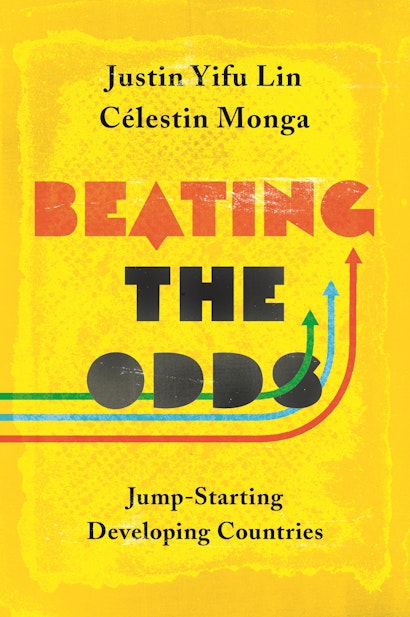Contrary to conventional wisdom, countries that ignite a process of rapid economic growth almost always do so while lacking what experts say are the essential preconditions for development, such as good infrastructure and institutions. In Beating the Odds, two of the world’s leading development economists begin with this paradox to explain what is wrong with mainstream development thinking—and to offer a practical blueprint for moving poor countries out of the low-income trap regardless of their circumstances.
Justin Yifu Lin, the former chief economist of the World Bank, and Célestin Monga, the chief economist of the African Development Bank, propose a development strategy that encourages poor countries to leap directly into the global economy by building industrial parks and export-processing zones linked to global markets. Countries can leverage these zones to attract light manufacturing from more advanced economies, as East Asian countries did in the 1960s and China did in the 1980s. By attracting foreign investment and firms, poor countries can improve their trade logistics, increase the knowledge and skills of local entrepreneurs, gain the confidence of international buyers, and gradually make local firms competitive. This strategy is already being used with great success in Vietnam, Cambodia, Bangladesh, Mauritius, Ethiopia, Rwanda, and other countries. And the strategy need not be limited to traditional manufacturing but can also include agriculture, the service sector, and other activities.
Beating the Odds shows how poor countries can ignite growth without waiting for global action or the creation of ideal local conditions.
Awards and Recognition
- Shortlisted for the 2018 Africa-Asia ICAS Book Prize, International Convention of Asia Scholars and Association for Asian Studies in Africa
Justin Yifu Lin, former senior vice president and chief economist of the World Bank, is director of the Center for New Structural Economics and dean of the Institute of South-South Cooperation and Development at Peking University. His books include The Quest for Prosperity: How Developing Countries Can Take Off (Princeton). Célestin Monga is vice president and chief economist of the African Development Bank and visiting professor of economics at University of Paris 1 Panthéon-Sorbonne and Peking University. His books include Nihilism and Negritude: Ways of Living in Africa.
"An instructive look at how countries have to start growing before the right institutional framework is in place, and how they can get around that. . . . One of the better books on developing economies in the last few years."—Tyler Cowen, Marginal Revolution
"In their terrific new book, Beating the Odds: Jump-Starting Developing Countries, Justin Yifu Lin and Célestin Monga give the best overview account I've read of how countries might begin to achieve the lift-off from poverty trajectory, and an outline of how in practical terms governments might go about it. And although directed at poor countries, their analysis is more general."—Enlightened Economist
"Lin . . . and Monga . . . bring to bear their considerable scholarly credentials and practical know-how in this iconoclastic treatment of economics development in poor countries."—Foreign Affairs
"Passionately written and rigorous in its exposition, this book provides an excellent summary of what is wrong with contemporary development literature. . .a must-read for students of development economics."—Rahul A. Sirohi, Economic & Political Weekly
"This powerful book brings encouraging news to developing countries. A nation does not have to be developed to achieve economic growth: Witness Israel's cultivation of the Negev Desert and Mali’s vibrant mango industry. History gives striking examples of takeoff into sustained growth with little education and not much infrastructure either."—Edmund Phelps, Columbia University, Nobel Laureate in Economics
“After the failure of Washington Consensus economic policies, Justin Yifu Lin and Célestin Monga draw on examples of successful economic development from all over the world to show us the way forward. Rather than focus on austerity and painful ‘reform' programs, Lin and Monga demonstrate that there is a role for government, industrial policy, and other measures that help business grow and create jobs. They forcefully show that another world is possible."—Joseph E. Stiglitz, Columbia University, Nobel Laureate in Economics
“Justin Yifu Lin and Célestin Monga draw on long experience and insightful analysis to show how successful economic development depends, first and foremost, on a pragmatic assessment of each nation's comparative advantages and a realistic understanding of how they can change over time."—Roger Myerson, University of Chicago, Nobel Laureate in Economics


